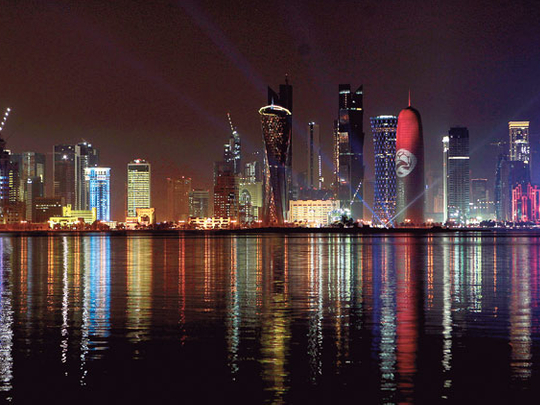
Dubai: Gulf states are going to spend $252 billion (Dh925.6 billion) in energy and power projects in the next few years with Qatar leading the pack with $125 billion while Saudi Arabia plans to pump in $100 billion.
Kuwait plans to spend $27 billion (Dh99.30 billion) through 2014 to develop its water and power infrastructure, a government utility official said on Monday.
Qatar plans to spend over $125 billion in the next five years on construction and energy projects and the Opec member's economy should continue powering ahead strongly, its new development strategy showed on Monday.
The world's top liquefied natural gas exporter, which has so far escaped unrest flaring up in the Arab world, is eyeing a rise in government spending for the new fiscal year 2011-12, helped by robust crude prices and recent gas output expansion.
Saudi Arabia plans to spend more than $100 billion on power plants and distribution networks by 2020 to meet domestic electricity demand that's growing twice as fast as the Arab world's largest economy, officials said.
The Ministry of Water and Power expects to raise by 30 per cent an earlier forecast of 303 billion riyals in power-related expenditures over the decade, Deputy Minister Saleh Al Awaji said yesterday at a conference in Abu Dhabi.
The projected increase reflects in part Saudi Arabia's need to electrify 500,000 new homes that King Abdullah Bin Abdul Aziz ordered built as the government tries to forestall potential unrest, amid protests for better employment opportunities and democracy that have engulfed the Middle East.
King Abdullah announced $67 billion in public spending on March 18, including payments for new homes and for military and religious groups that backed the government's ban on demonstrations.
The spending plan comes in addition to a $36 billion handout announced on February 23. "That's probably a conservative estimate," Abdullah Al Shehri, governor of Saudi Arabia's Electricity and Co-Generation Regulatory Authority, said in an interview in Abu Dhabi.
About one-third of the new investment would be for power plants, with the rest going toward the national grid, Al Shehri said.
"This year, it [economic growth] is going to be very high. Next year it will be less, but still in double digits," Qatar emir's economic adviser Ebrahim Al Ebrahim said.
The document, which outlines Qatari plans for 2011-2016, forecast 15.7 per cent growth in 2011, in line with a Reuters poll but less than an 18 per cent prediction last week by the central bank governor.
Out of date forecasts
A forecast for 2012 of 7.1 per cent growth may already be out of date, as it assumes an average oil price of $86 per barrel.
"That projection was based on a price of oil that is now higher. The impact of the expansion in oil, and especially gas has not been felt in the economy yet," said Ebrahim, secretary-general of the General Secretariat for Development and Planning.
Crude prices have climbed to their highest since September 2008 on the turmoil that spread to nearby Bahrain, Oman and Yemen, with US crude near $104 per barrel yesterday.
Abu Dhabi (Agencies) The cash-rich state of Qatar plans to invest over 130 billion riyals ($35.7 billion) in 2011-2016 through its state-linked companies, including about 100 billion riyals through Barwa and Qatar Diar for residential and business construction projects. Qatar Petroleum and its units should spend a further 88 billion riyals, while state infrastructure spending will amount to over $67 billion including roads, port, power and water projects, the document showed.
In June, Qatar's finance minister said both the government and state-owned companies planned to spend $100 billion over the next four years.
"Qatar has a good sovereign rating, so there will be nothing to stop it from going to the market to issue bonds and borrowing a bit more," said Daniel Kaye, senior economist at the National Bank of Kuwait.
Saudi Arabia
Saudi Arabia, which holds the world's largest oil reserves, wants to increase power supplies to propel economic growth and create jobs for its expanding population of 27 million people. The kingdom is building cities on its Red Sea and Persian Gulf coasts and diversifying into plastics, steelmaking and other industries.
Power demand in the kingdom is set to increase about 8 per cent annually over the next five years, according to government estimates.
That's roughly twice the economic growth rate of more than 4 per cent that Mohammad Al Jasser, governor of the country's central bank, forecast last week for 2011.
The country has about 45,000 megawatts of generating capacity, according to the 2009 annual report of state-run Saudi Electricity Company. To satisfy future demand, capacity must expand to 75,000 megawatts by 2018 and more than 120,000 megawatts over the next two decades, Al Shehri said.












